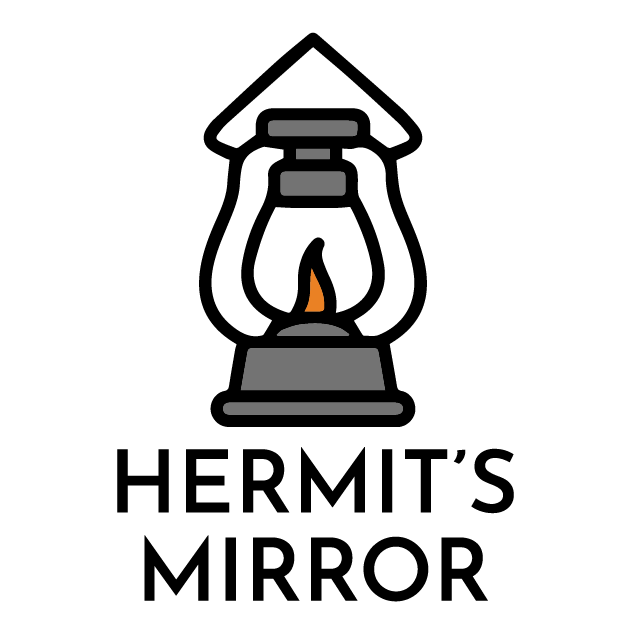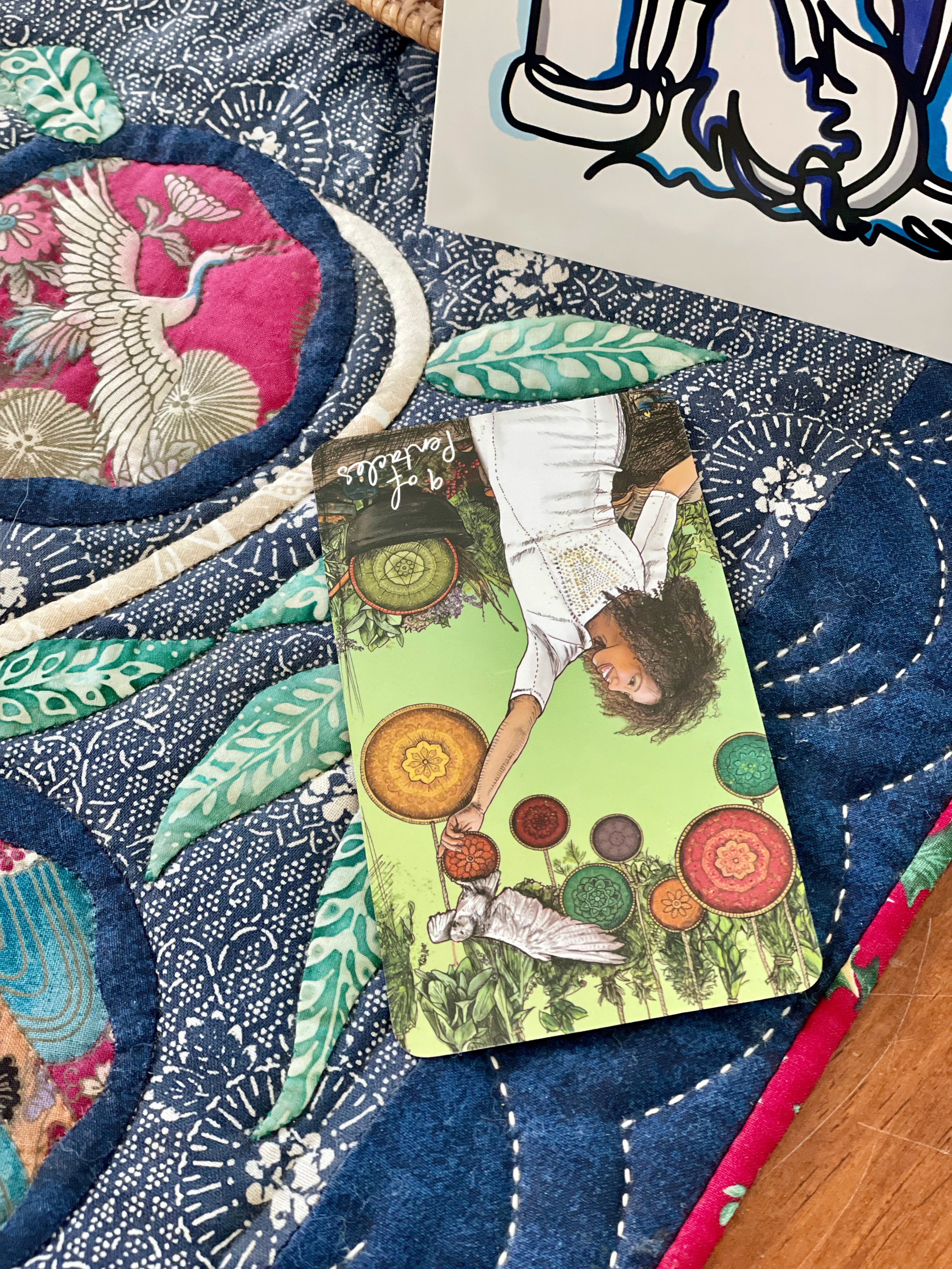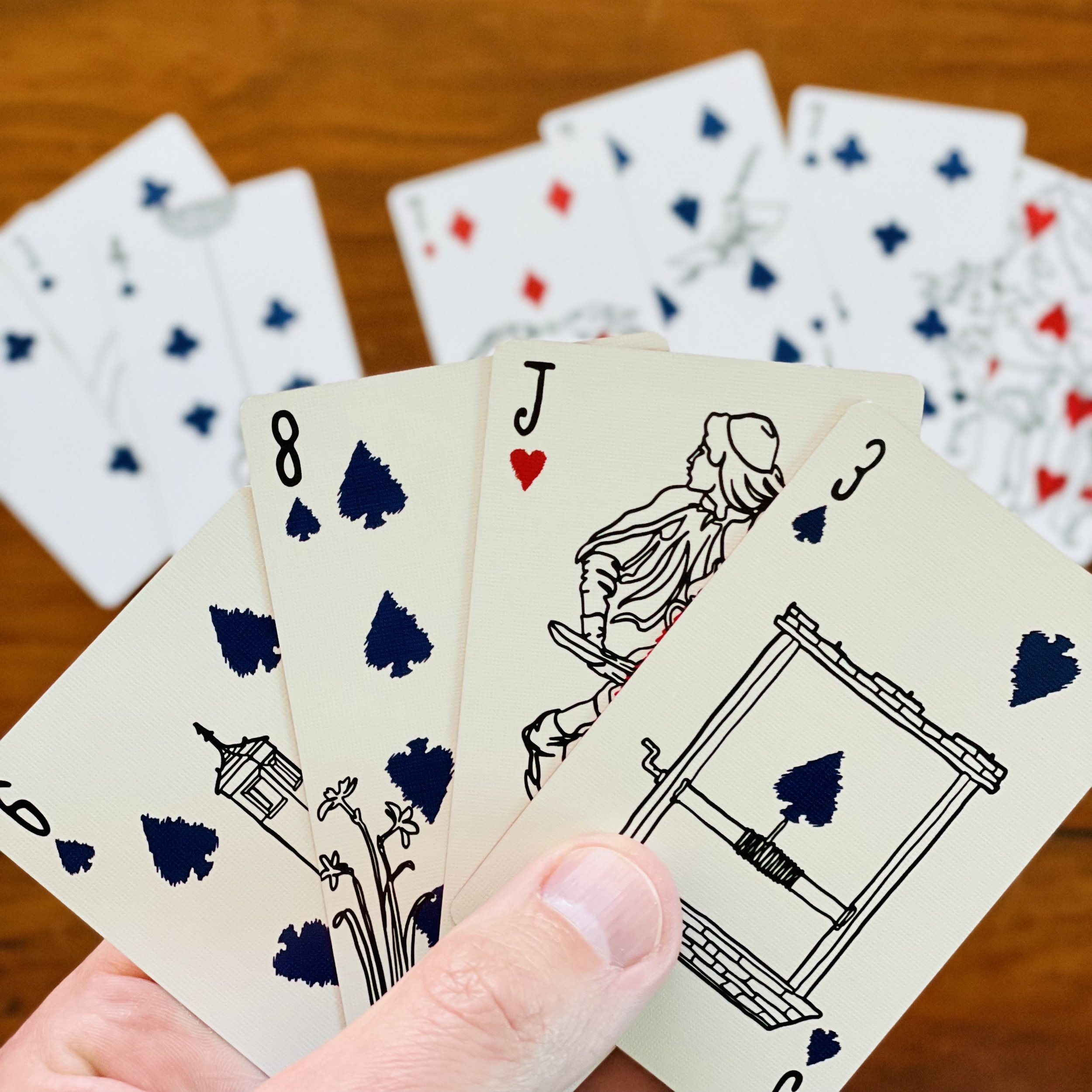Do You Know How to Play Rummy?
It’s amazing how much builds up over time that we don’t realize, isn’t it?
As I sit staring at the ocean on a semi-vacation with my childhood family, I think of all the grains of sand that come and go without the shore looking all that different from one day to the next. But seen years apart, the coastline is hugely impacted by the artificial peninsula of Cape Canaveral. Every few years, they have to pump tons and tons of sand back onto the shore to recreate the beach that has been artificially (and dangerously) eroded over time.
In many of the books that I’ve been reading or “blinking” the last few months, the value of gradual progress is a recurring theme. The specifics differ, but the general trend is that lasting change is typically incremental and the only right time to start is now, whenever now is.
One of the introductory analogies of Atomic Habits reminds us that small miscalculations that go uncorrected over time can take you far off course. Conversely, small adjustments (the eponymous “atomic habits”) can accumulate to become significant over the long run. Digital Minimalism describes the way that something as innocuous as Facebook’s Like button can have surprising and profound effects on the way we experience life.
The advice in these books and others like them is often contradictory, and the interpretive claims can be presumptuous, such as assuming causation when demonstrating only correlation. But the gist is often the same worthy advice: be intentional, and you can retake control of your life. It sounds easy, but it can be hard to maintain in the realities of day-to-day life.
For myself, I’ve discovered that minor tasks and brief diversions add up to missing hours. When I cut them out, I either find myself with more hours of productivity or, even better for me, time to just be. I could fill my time with new projects or tweaking details on something old or, more often than not, overthinking a photo that will be considered for half a second. Despite that, I sometimes slide back into familiar patterns and time-killing habits out of convenience. After all, it’s easier to escape the decision-making that comes with retaking control of your life. And a lot of the time, life feels hard enough. How terrible is that? In those scenarios, something needs to change.
Recently, I’ve been letting myself create just for the fun of it rather than to monetize my creative work. But I still fight the impulse to question what I’m doing or try to put it in the perspective of a new potential product or brainstorm a whole new spin-off enterprise.
I’ve been doing deep and indulgent tarot readings for myself, to reflect on life and where I might take it, naturally, because I find that intellectually interesting. But it’s also been great to just enjoy the experience of spending time with my thoughts and my guides and my beloved cards.
I’ve been reading full books, not just blinks, and spending slightly more time with my partner. And I’ve even taken a short vacation. (Okay, it’s a semi-vacation since I’m writing this blog post and a newsletter during it, and I’m teaching two classes during it, and I’ll work two full days of it, but that’s still a light schedule by my standards.)
In this unusually “unproductive” time, I’ve been able to learn, or at least be reminded of, some important things that I’d like to share with you.
Much of what I do in a given day was once remarkable.
My everyday life in 2023 would have seemed fanciful and strange to me in 2013. Some of it would have been completely unimaginable in 2003. And to a person in 1983, let alone 1923? Parts would be mind-melting.
If you’re 20, twenty years is a lifetime ago. But if you’re 40 or older, as I am, 2003 was not really that long ago. I was an adult (in my mind), and I was making life-changing decisions. Yet that was before the iPhone and YouTube and Facebook. Even Blogger was only a few years old. What a different world.
I remember walking through campus with my Discman that could play a CD with—ooh, so fancy!—more than six hours’ worth of music thanks to an ability to read MP3 files. I could use 100 minutes of call time each month on my not-so-smart phone before I accrued extra fees, but text messages were exorbitantly expensive. Sending an iMessage over WiFi to Asia at no extra cost? Forget the free part. What was an iMessage? What was WiFi? (The closest thing was the near-field wireless connectivity my bougie campus installed for MacBook users who had bought an “Airport” upgrade.)
It’s easy to forget those trivial details in the torrent of life. After all this time, who cares?
But at the time, these new things were truly remarkable. Until they were ordinary. And then they were a footnote in the cold-storage section of my memory (plenty others have been fully forgotten). In the weekend of writing this, we hope to see the launch (from the aforementioned Cape Canaveral) of a SpaceX rocket, the majority of which was created from parts that were printed on a 3D printer. Talk about remarkable. But in a few years, I’m sure it won’t seem so strange or novel.
Take a moment to recall some of those trivial details of everyday life for yourself. What seemed remarkable that is now completely mundane? It’s really something when you stop and think.
Of course, technological innovations are not the only remarkable changes that are so easily forgotten.
It’s easy to forget the life-altering decisions you once made.
There would be so many more to come after them. And there have been so so many more that have come and gone.
Because of this, it can be a useful exercise to look back and think what different choices you might have made and where they might have led.
I say this not because I think you should regret your past decisions—that’s rarely a good use of your time and energy. The “hindsight is 20/20” refrain is, scientifically speaking, nonsense. As several books on decision-making have helped me come to understand, we can only judge our decisions based on what we knew at the time, not the outcomes. The outcomes were unknowable. Even when we diviners predict what is most probable, we can never know how the other decisions would have actually panned out. The multiverse is littered with my corpses.
Sure, I could have called that Wilhelmina Modeling Agency talent scout after she gave me her card standing in line for lunch. Or I could have called that much sketchier “talent scout” a few years earlier after he gave me his card walking past the Herald Square Macy’s makeup counter. (Thankfully there was an even bigger red flag. “You’re at least 18, right? No? I’m sure we can figure something out.”) I could have studied graphic design instead of anthropology and made a career out of what’s now a beloved side skill. I could have continued Taekwon-Do for another year instead of studying abroad and (probably) gone to the Junior Olympics. Or I could have practiced piano and now, you know, been able to play piano.
I don’t know that any of it would have led me to a better life than the one I enjoy now. Different? Probably. Better? Probably not.
What I do know is that I honestly hadn’t thought about most of those things in years before writing that paragraph because they stopped being important to me a long time ago.
What I also know is that the specters of past love never arose in those examples. It’s not even interesting for me to ponder, unlike questions of skill and career development and fame.
That tells me something about my Leo Rising / Virgo Moon self.
Humans adapt to new situations quickly.
It’s a key evolutionary trait that has helped our species survive. It can be great, such as after suffering major setbacks, but it can also be a bummer, such as when the glow of a major victory fades. We regularly reset to neutral.
That adaptability is why small changes are so easily ignored. When we’re changing slowly over time, we don’t notice. But those changes are obvious to anyone who hasn’t seen us throughout the process. We can see these changes, too, when we take a longer, outside view of things. It’s easier to see what’s changed, as well as what hasn’t.
Revisiting your choices to do (or not do) certain things can help you see what has (or hasn’t) led to change for you and how you feel about it. That’s a useful exercise. But it’s even more useful to think of what mattered to you then and what matters to you now. Where is there continuity? Where has there been a shift? And are you shifting in a direction that’s more true to you? If not, what will you do next?
Since this is a Chariot year, revisiting such choices in an intentional way (not a nostalgic and self-defeating way) can help you see where you want to direct your focus next. Next is where you have the most control. Yes, I believe that you can navigate the River of Time to go back and heal your past and reclaim it. But even then, you can only control what you do with that healing moving forward.
And sometimes moving on requiring letting go.
I already played the 7 of Spades as part of a four-of-a-kind. The 6 of Spades and 8 of Spades can’t be part of the same set anymore. Why hold onto them?
Do you know how to play rummy?
I pose this rhetorical question for two reasons.
First, I traveled by plane to visit my mother and sister and step-father, and after putting down the book I was reading, I started playing solitaire (with the Life Line Lenoracle in case you were curious). The woman next to me, clearly bored, watched me for a few rounds and then asked, “Do you know how to play rummy?” As a result of this question, I invited her to play cards with me and teach me her version of rummy.
I can’t tell you the last time I talked to a stranger on the plane for more than ten seconds, let alone played cards with them for more than half an hour. It’s been many years. And I think that’s a personal loss.
I’ve always taken a deck of playing cards with me whenever I’ve traveled. It was one of two items I was taught to always bring with me because it’s a low-maintenance source of virtually endless entertainment. (The other was a swimsuit in case I had a chance to go swimming.) Solitaire has its appeal, but a card game with an opponent is usually more fun to me.
I don’t know when my aversion to playing card games with strangers on the plane started, but it was a gradual change in behavior that seemed a foregone conclusion. But it shouldn’t have been. Having identified it, I can be open to making new choices more in alignment with my interests.
The second reason I ask this question is because rummy is a game of adaptive strategy that some people struggle to grasp. My sister reminded me of this while we were playing cards one night of this semi-vacation.
In rummy, you create sets of straight flushes and three- or four-of-a-kind using the cards in your hand and whatever your opponent plays on the table. Since you have to pick a new card and discard a card every round, and since your opponent may play a card you were hoping to get in a different set than you want, you regularly have to change your strategy as to which sets you’re trying to create.
If you stay fixated on a straight flush or triplet that you can’t finish, you can’t win the game. You’re welcome to sit with that lesson a moment.
In the related game of gin rummy, which we also played, you don’t even get to see what the other person has until the game is over. All you can tell is what the other person picks up and discards. Once you don’t pick up a discarded card, it’s unavailable to you. And in games with more than two players, you might not even have the option of picking it up. If you miss your chance to make a straight using that lost card, you might be better off dumping the extra cards. You have to make the same calculus when your suspect that your opponent is trying to use the card you need.
In these games, you have to be willing to give up what you started to build. You can’t get overly invested before you’ve finished the set.
And that's a valuable analogy for me right now, especially as Saturn has just entered Pisces, an astrological pairing that I associate with the 8 of Cups.
Moving on is frightening, but knowing where to head helps.
It’s been shown in psychological studies that people fear losing what they have, even if it’s brand new, more than they fear not gaining what they could have. Even when the odds are, overall, in their favor, people are more likely to stick with a single proverbial bird in the hand rather than attempting to capture the many others hanging out in the bush.
I am not one to judge: I understand the fear. I am very oriented toward certainty and security. And I’m also suspicious of the need to have more just to have more.
Yet I also believe that the story told by the tarot is powerful. And in that story, you have to pass through the 8 of Cups to get to the 9. That can only happen after you face the big decisions of the 7. What is it that you think you want? And what is it that your soul really wants for you?
I’ve been thinking about the stories of the minor arcana a lot for my course on the Hard Cards of Tarot. The minor arcana, as seen in the Smith-Waite Tarot illustrations and in the interpretations of even the pip-based Thoth Tarot, tell stories of the ups and downs of the suits. Each card is a point along the broader experience of the suit.
In the Cups, the original promise of the seemingly positive suit grows distant by the 4 and then is outright despondent in the 5. It’s recovered in the 6, but then there’s a reckoning, and tough choices have to be made. Once you get out of the funk, you have to get honest with yourself about what you want. Making those changes requires taking one step at a time through your personal valley of darkness. The way isn’t always clear, but as long as you know the general trajectory of your journey, you can make significant progress over time. The person in the Smith-Waite 8 knows that they need to get up and over the mountain, right? That’s a good start.
So what do you need before you can take those steps you want to take?
Do you use your cards?
If you can read tarot, you can learn how to use the cards to discover your general trajectory, identify and avoid your common pitfalls, and assess the prevailing winds so that you can move ahead with clarity, even when the way seems dark.
My small-group coaching program, Tarot to Transform Your Life, is designed to teach you to do just that. Learn how to use tarot to make real and lasting change in your life by getting into alignment and acting with intention. You’ll learn to make the most of where you’ve been and what’s coming your way, and you’ll be able to put it into practice with me as your guide, lighting the path.




